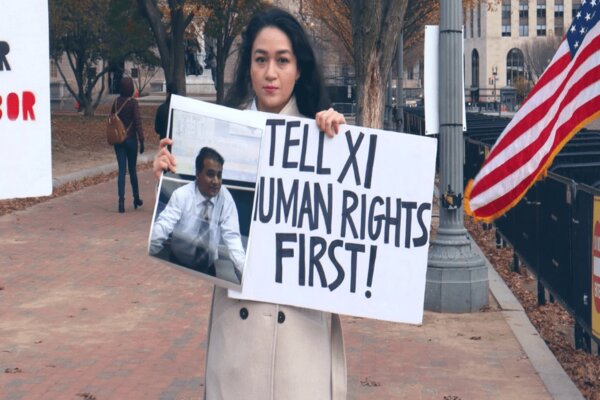Uyghur activist Nursimangul Abdureshid is a refugee in Turkey. She lost contact with her family five years ago and did not know where they were until 2020. Through the Chinese embassy in Ankara, she was able to confirm that her parents and her younger brother, Memetili, had been imprisoned on terrorism charges.
Thanks to the leak of two Chinese police databases accessed by Uyghur activists, she discovered that her brother might be in a prison outside the city of Aksu, approximately 600 kilometers from her home. In statements to AFP published in different media, Abdureshid said, “It’s much better than not knowing anything about where he is.”
One of the databases, which the AFP correspondent himself was able to view, lists more than 10,000 imprisoned Uyghurs – including more than 100 from Abdureshid’s village – from Konasheher county in southwestern Uyghur Region.
The list details name, date of birth, ethnicity, ID number, position, address, length of sentence, and reason for imprisonment for each detainee.The list shows that Abdureshid’s brother’s sentence is 15 years and 11 months.
Abdureshid also recognized the names of seven other villagers, all of whom were small business owners or agricultural workers who, according to her, have no links to terrorism. She has no information about her parents and older brother. She doesn’t know if they are alive or dead – they are “simply” missing.
The leak shows that hundreds of people were detained from every township and village, many often from the same household. David Tobin, Professor of East Asian Studies at the University of Sheffield Britain, noted:
“This is not clearly-targeted anti-terrorism. It’s going to every door and taking a number of people away. It really shows they’re arbitrarily targeting a community and dispersing it across a region”.
People are detained on wide-ranging charges, such as “gathering a group to disrupt social order,” “promoting extremism,” and “provoking fights and trouble.” Indeed, the same government data indicate that the number of people convicted by courts in the Uyghur Region soared from around 21,000 in 2014 to more than 133,000 in 2018.
Many other Uyghurs, not charged with any crime, were sent to what activists call “re-education camps” scattered throughout the Uyghur Region where reports of forced labor and other egregious human rights abuses are rampant.
Since 2017, Beijing’s ideological “Strike Hard” campaign against alleged Islamic extremism has intensified: pressure sentences tripled, and convictions are handed down in closed-door trials. The Chinese government denies persecuting Uyghurs and other Muslim minorities in the Uyghur Region and describes what is happening in the territory as a legitimate response to extremism. The government says it has spent billions of dollars on economic renewal in the impoverished region.



